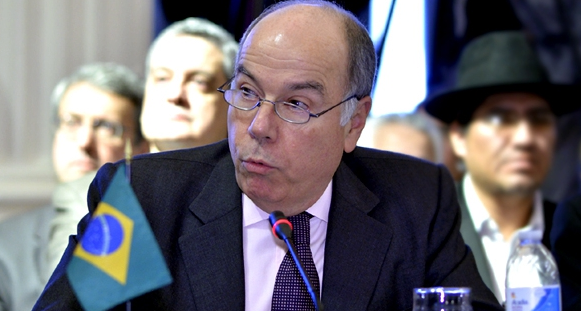
Four years after Brazil launched the note entitled ‘Responsibility while protecting: elements for the development and promotion of a concept’, the Rousseff administration’s most significant international initiative is today generally thought to be long forgotten and lost in oblivion. Reflecting the Brazilian government’s apparent decision to turn the page, the Permanent Misson website’s link leading to the document, used by hundreds of papers and websites about the topic, has been deactivated.
Brazil was ultimately unsuccessful in generating a sustained global debate and turn the concept into a household name, largely because other countries did not decide to fully embrace the idea and join Brazil in promoting it, and because Brazil decided not to resist the initial (but normal) pushback. Yet while talk of RwP today is confined to obscure academic conferences, it would be wrong to relegate RwP to the ash heap of history. Quite to the contrary, the ideas articulated in the RwP concept are waiting to resurface as they point to crucial issues regarding the implementation of the Responsibility to Protect (R2P) and the way we think about the protection of civilians. There is no doubt that the next crisis and the international community’s response to it will bring back most of the dilemmas and proposals voiced in Brazil’s 2011 document.
The UN Security Council today is dominated by stalemate and a highly poisonous atmosphere that leaves little hope for constructive discussions about RwP, so chances to successfully relaunch the debate around RwP at this moment are slim. However, in order to respond more adequately to future crises, it is necessary to start working behind the scenes today and lay the groundwork for a more focused and structured discussion in the future. The natural countries to take the RwP proposal forward are India, South Africa and Brazil, the three members of the IBSA grouping. Contrary to the BRICS grouping, IBSA possesses a unique capacity to establish a real dialogue between the strongly divided P5.
Foreign Ministers and UN Permanent Representatives of the three IBSA countries in New York should undertake three steps to revive the RwP concept. First of all, they should internally agree on a follow-up concept note that incorporates the lessons learned after Brazil presented the RwP concept to the public — for example, the insistence on strict sequencing should be removed. Secondly, they should devise a global and coordinated effort, involving South African, Indian and Brazilian embassies around the world to organize discussions involving local government representatives, civil society, media and academia. Given current dynamics in New York, it may be more productive to initiate such a roll out once tensions have dimished somewhat. The third step would consist of pushing for a gentleman’s agreement between the P5 (rather than a written agreement, which seems improbably at this point) to consider the ideas and concerns stipulated in the RwP concept paper — in the same way that France is currently seeking to limit the use of the veto in cases of mass atrocities.
Critics will point out that gentleman’s agreements matter little when national interests are at stake. Yet one should not underestimate the potential ideas such as R2P and RwP have to generate political pressure on veto-wielding powers. Discussing an idea on a global scale is a potentially consensus-inducing process, and once a significant number of countries openly support the ideas voiced in the RwP concept, the political cost for intervening powers not to consider them would increase significantly. In addition, Brazilian, South African and Indian support for an important addendum to R2P would powerfully weaken the ill-conceived belief that R2P is essentially a Western norm. The opposite is true. R2P and RwP are not based on merely Western concepts, as ideas of proportionality, just war, etc. are genuinely universal and visible in all religions or civilizations. Furthermore, the principles of R2P were first implemented not in the West, but in Western Africa.
Finally, a successful IBSA-led process would strengthen the platform and produce ideas about other fields were trilateral cooperation would help its members play a more active international role and defend their national interests.
Read also:
The Uncertain Future of IBSA (Carnegie Endowment for International Peace)
Why Modi should resuscitate IBSA
IBSA: The Rise of the Global South?
Why is there still no IBSA free trade agreement?
Photo credit: MRE








